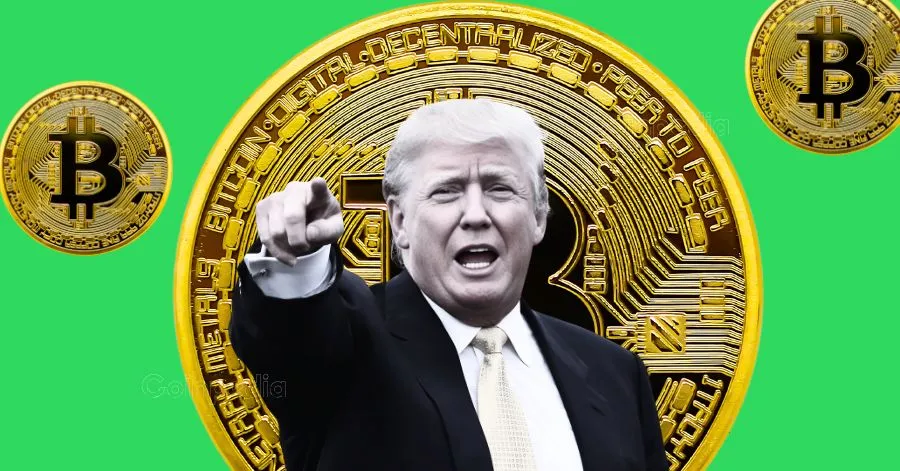
“`markdown
The intersection of cryptocurrency and political power has become a powder keg of controversy – and nobody’s lighting the fuse quite like Donald Trump. From Mar-a-Lago memecoins to backroom deals with Binance, the former president’s crypto ventures reveal a dangerous pattern: the financialization of political influence through unregulated digital assets. As regulators scramble to keep pace, these shadowy alliances threaten to turn blockchain technology into a playground for oligarchs and political operatives.
Trump’s Binance Gambit: Politics Meets Pump-and-Dump
Recent subpoenas reveal Trump’s family office held secret talks about acquiring stake in Binance US – the American arm of an exchange that paid $4.3 billion in DOJ fines. This isn’t just hypocrisy from the man who called crypto “a disaster”; it’s financial arson. Binance’s former CEO CZ sits in federal prison for money laundering violations, yet Trump’s team reportedly discussed launching a WLFI stablecoin to funnel $2 billion into the platform. The playbook’s transparent: use political clout to prop up shady financial instruments, then cash out before regulators notice the stench. Remember when Trump Tower became the NFT sales hub? That wasn’t eccentricity – it was beta testing.
The UAE Connection: Petrodollars Meet Political Tokens
Buried in the SEC filings is the real bombshell: Binance’s major backers include UAE sovereign wealth funds. If this deal proceeds, Trump wouldn’t just own a piece of a crypto exchange – he’d become business partners with Middle Eastern royalty while potentially influencing U.S. crypto policy. The same politicians screaming about foreign interference turn silent when their own campaigns accept crypto donations. Warren’s letters to Treasury reek of theater; the real crime is how easily political elites exploit regulatory gray zones. When a single Trump-themed meme coin can swing $100M in volume post-tweet, we’re not dealing with markets anymore – it’s geopolitical money laundering with blockchain characteristics.
Stablecoin Shell Game: How Politicians Launder Influence
The WLFI stablecoin at the heart of this scandal isn’t technology – it’s a financial Trojan horse. These dollar-pegged tokens let political operatives move value globally while avoiding banking scrutiny. Senate’s stalled stablecoin bill? Coincidentally delayed as Trump-affiliated groups lobby against oversight. The playbook mirrors the 2008 housing crisis: create complex financial instruments, get ratings agencies to bless them, then watch the house of cards collapse. Except this time, the “toxic assets” are digital tokens backed by political promises instead of mortgages. When Van Hollen’s committee found WLFI tokens funding right-wing PACs, it confirmed crypto’s dark evolution: from cypherpunk dream to super PAC slush fund.
The crypto-political complex won’t die with indictments or legislation – it’ll mutate. As 2024 campaigns integrate blockchain fundraising and pols mint their own tokens, we’re witnessing the birth of a parallel financial system where influence trades hands faster than SEC subpoenas can be issued. The real bubble isn’t in crypto valuations; it’s in our collective delusion that politicians won’t weaponize decentralized tech. When Trump’s NFT sales outpaced his Iowa caucus votes, the market sent its verdict: politics is now a speculative asset class. Buckle up – the only thing getting “stable” here is the revolving door between Capitol Hill and crypto exchanges.
“`






